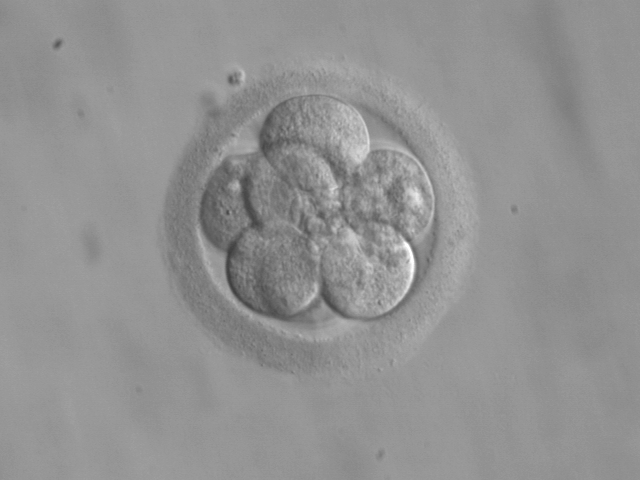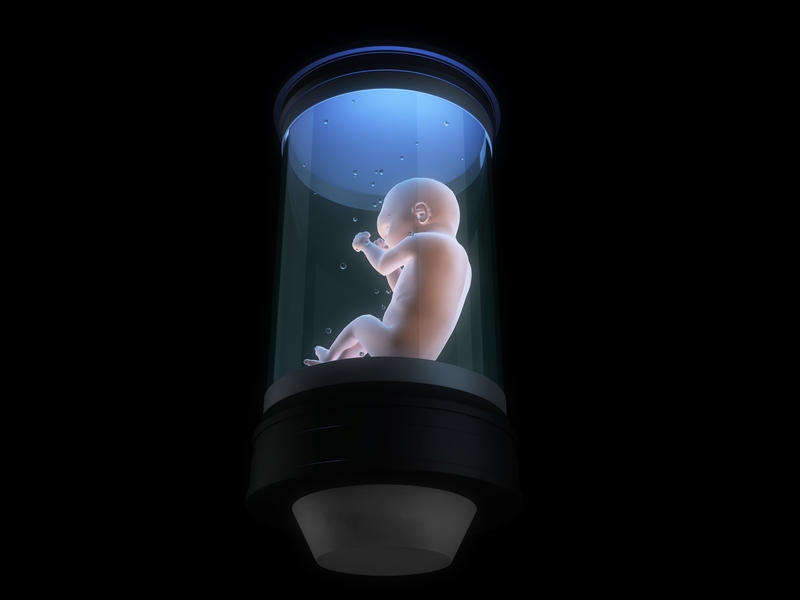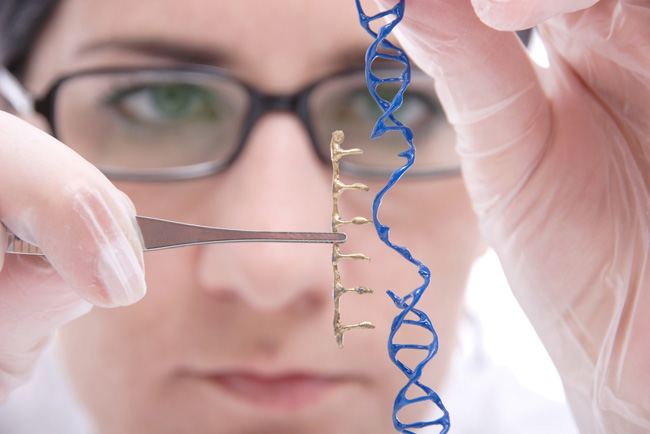
11th September 2015 GM babies could be "morally acceptable" in the future A group of scientists, ethicists and policy experts have released a report in which they state that research into GM human embryos is "essential" and should be permitted. While the birth of complete GM babies should not be allowed at present, they believe it may become morally acceptable in the future.
Research that involves editing of the human genome – including research with human embryos – is essential to gain basic understanding of biology and germ cells and should be permitted, according to one of the first global meetings to debate the controversial new techniques. This bold statement is published by the Hinxton Group, a global network of stem cell researchers, bioethicists, and experts on policy and scientific publishing, who met in Manchester, UK. Earlier this year, scientists in China edited the genome of live human embryos using a revolutionary new technique known as CRISPR/Cas9, to prevent a fatal blood disorder. This type of research is currently banned in Europe and the United States. While firmly backing the need for gene editing research, the Hinxton Group makes a clear distinction between laboratory research and clinical applications: "We believe that while this technology has tremendous value to basic research and enormous potential for somatic clinical uses, it is not sufficiently developed to consider human genome editing for clinical reproductive purposes at this time," the report states. Nevertheless, the consensus statement adds, "when all safety, efficacy and governance needs are met, there may be morally acceptable uses of this technology in human reproduction, though further substantial discussion and debate will be required."
According to Debra Mathews, a member of the Hinxton Group steering committee, discussions at the meeting focused on the use of gene editing in research and the most contentious aspects of these new technologies – primarily the implications for any children born with engineered genetic modifications, and also successive generations who would inherit those genetic changes; that is, the inheritable, or germline, nature of modifications. "While there is controversy and deep moral disagreement about human germline genetic modification," says Mathews, "what is needed is not to stop all discussion, debate and research – but rather to engage with the public, policymakers and the broader scientific community, and to weigh together the potential benefits and harms of human genome editing for research and human health." In the future, parents could have the option of genetic treatments to prevent their children being born with cystic fibrosis, for example, or genes that increase the risk of cancer. Eventually, it might even be possible to create "designer babies" with height, skin, hair, eye colour and other characteristics programmed into the embryo prior to birth. However, in addition to concerns about the technical and safety aspects of these procedures, ethical issues would arise over people with built-in genetic advantages and the two-tier society this could lead to, reminiscent of the sci-fi movie Gattaca. Such technology is likely decades away, but in the meantime, knowledge gained through basic science research is essential to human understanding of both ourselves and other life, the group concludes. While genetic modification has been used successfully for over 30 years to alter genes in animals, these methods have been inefficient, often lacking specificity or otherwise relying on a series of steps that made them both inappropriate and unsafe to use in humans. More recent advances in genome editing technology, however, make it possible to insert, delete, or modify DNA with greatly increased precision and efficiency.
"Much of our knowledge of early development comes from studies of mouse embryos, yet it is becoming clear that gene activity and even some cell types are very different in human embryos. Genome editing techniques could be used to ask how cell types are specified in the early embryo and the nature and importance of the genes involved," says Robin Lovell-Badge, another member of the Hinxton Group steering committee and head of the Laboratory of Stem Cell Biology and Developmental Genetics at the Francis Crick Institute. The group statement emphasises the importance of "meaningful and substantial public engagement" to decision-making about genome editing. Policymakers are specifically addressed, stating that policy restraints on science should have justification "that reaches beyond disagreements based solely on divergent moral convictions." "The relevant regulatory distinction should be not between using genome editing in somatic cells and using it in embryos, but between research and reproduction: whether those embryos are ever destined to be implanted," says Sarah Chan, another steering committee member. "Restricting research because of concerns that reproductive application is premature and dangerous will ensure that it remains forever premature and dangerous, for want of better knowledge."
Comments »
|









